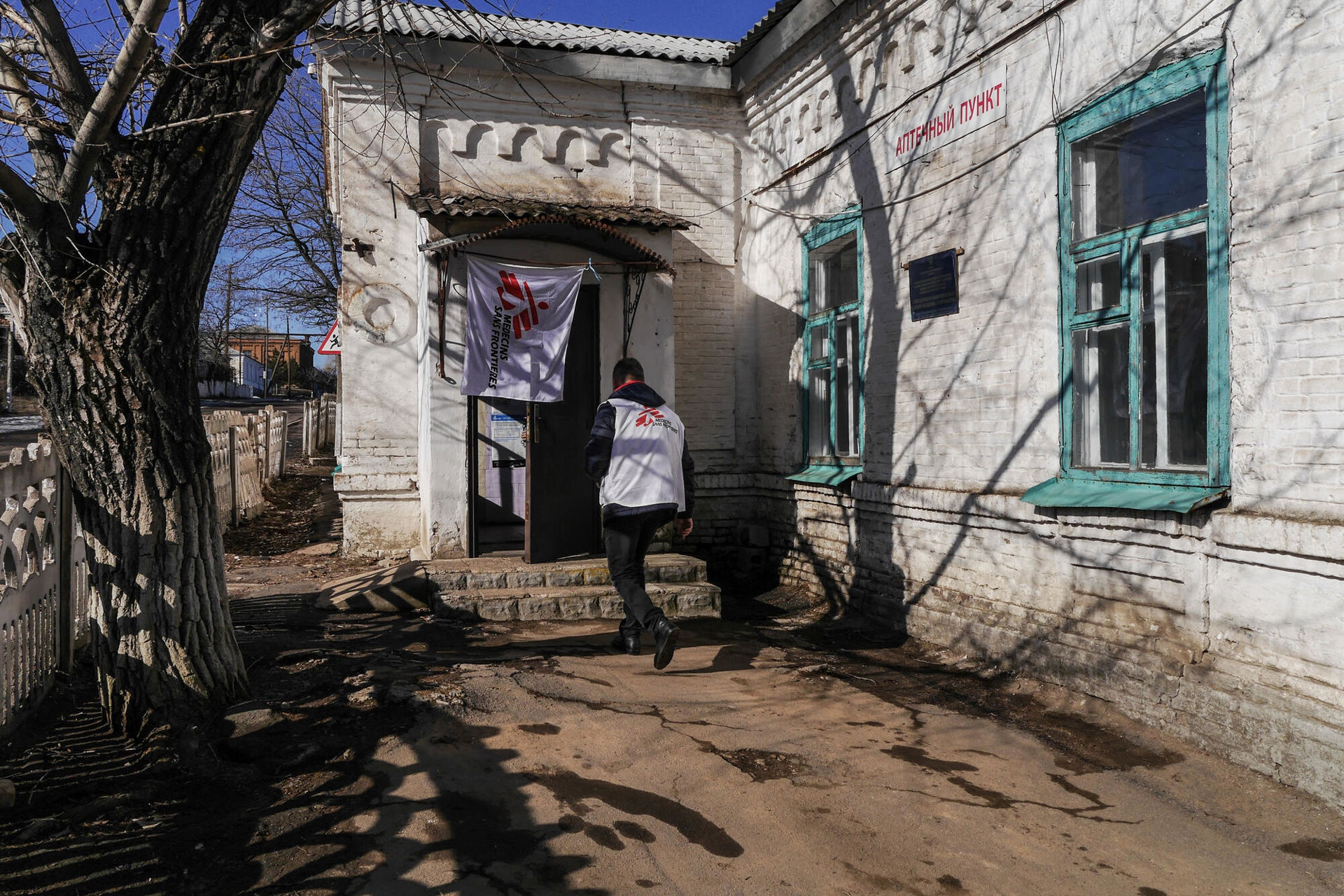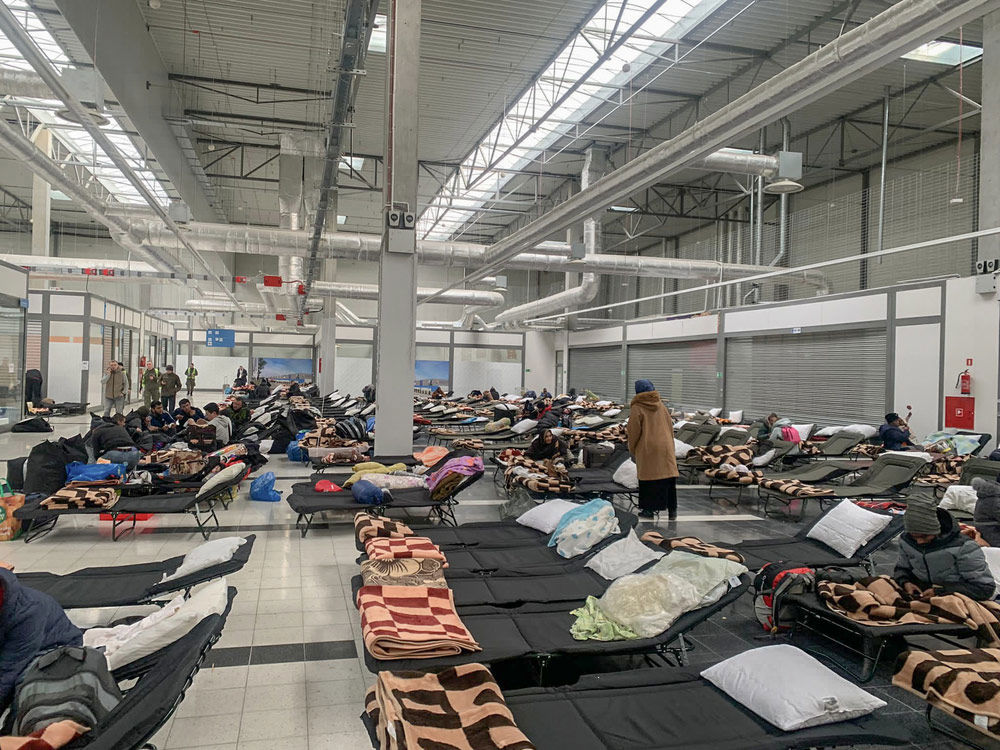MSF teams remain in Ukraine, and we are currently seeking ways to adapt our response as the conflict situation evolves.
We are deeply worried about the consequences of the conflict for Ukrainian people and communities. We see on the roads that tens of thousands of people are frightened and on the move.
The drastic change in context means we have had to take the painful decision to halt our activities, which included HIV care in Severodonetsk, TB care in Zhytomyr, and improving health care access in Donetsk in eastern Ukraine, where we have been providing much-needed health care to conflict-affected communities. Although these programmes have now mostly stopped, we did all we could to ensure some continuity of care for our patients. The needs were already high as people had been living through 8 years of conflict, and we are worried about the impact prolonged fighting could have on patients, many of whom are elderly and suffer from chronic diseases.
Immediately before the escalation of tensions, we were in contact with several hospitals in Donetsk and Luhansk oblasts to provide training in emergency medicine and surgical preparedness, and yesterday, our team provided one mass casualty kit to a hospital in Mariupol. As hostilities continue, assuring people's access to health care and medicines will be critical.
Our teams are looking into how they can adapt MSF's activities to respond.
The situation is fast-evolving, so we are mobilising general emergency-preparedness response to be ready for a variety of potential needs. Our teams in Belarus and Russia stand ready to provide humanitarian assistance if needed and we are looking to send teams to other neighbouring countries to be ready on stand-by, either for response in Ukraine or to provide humanitarian medical assistance to refugees seeking asylum abroad.
Our supply centres are currently working on readying medical kits for rapid dispatch. We will need to see over the coming period what access will be possible in a safe and impartial manner for humanitarian assistance.
Regular projects in eastern Ukraine:
Donetsk Oblast (province) – Healthcare access in conflict
- The project focuses on improving access to quality healthcare for vulnerable people living in villages and towns near the contact line
- MSF provides training and support to doctors and nurses working at healthcare centres (ambulatories) and village health points close to the contact line
- Village health team volunteers are supported by MSF to transport fellow-villagers to doctors' appointments and hospitals, provide health information, and collect and deliver prescription medications from pharmacies linked to the government's Affordable Drugs Programme.
- MSF also trains doctors and nurses (through the WHO's mhGAP programme) so that they can provide mental healthcare – something that is crucial for conflict-affected people but has not previously been available at primary healthcare level.
- Support related to COVID-19 is integrated into this project
Luhansk Oblast (province) – Advanced HIV
- MSF has been collaborating with Luhansk regional HIV/TB programme since January 2020 in 6 hromadas (districts).
- The project works with existing health facilities to improve diagnostic and treatment capacities for patients with advanced HIV.
- MSF has also donated drugs for the treatment of opportunistic infections, vaccines and medical supplies, as well as laboratory equipment.
- From 2022, MSF is introducing active case-finding activities, focusing on the most at-risk groups: young people engaged in unprotected sex, commercial sex workers and people who inject drugs.
MSF also runs a DR-TB project in Zhytomyr region in northwestern Ukraine. MSF has been providing treatment for drug-resistant tuberculosis (DR-TB) since 2018 in partnership with Ukraine’s Ministry of Health and Zhytomyr Regional TB Dispensary. In 2019, MSF began a four-year operational research study to investigate the effectiveness of a patient-centred model of care combining shorter treatment, and psychological counselling and social support. MSF is also constructing a state-of-the-art Biosafety Level 3 laboratory within the hospital.
MSF also has several projects in neighbouring countries, including Russia. Our teams in Russia stand ready to provide humanitarian assistance if needed.



